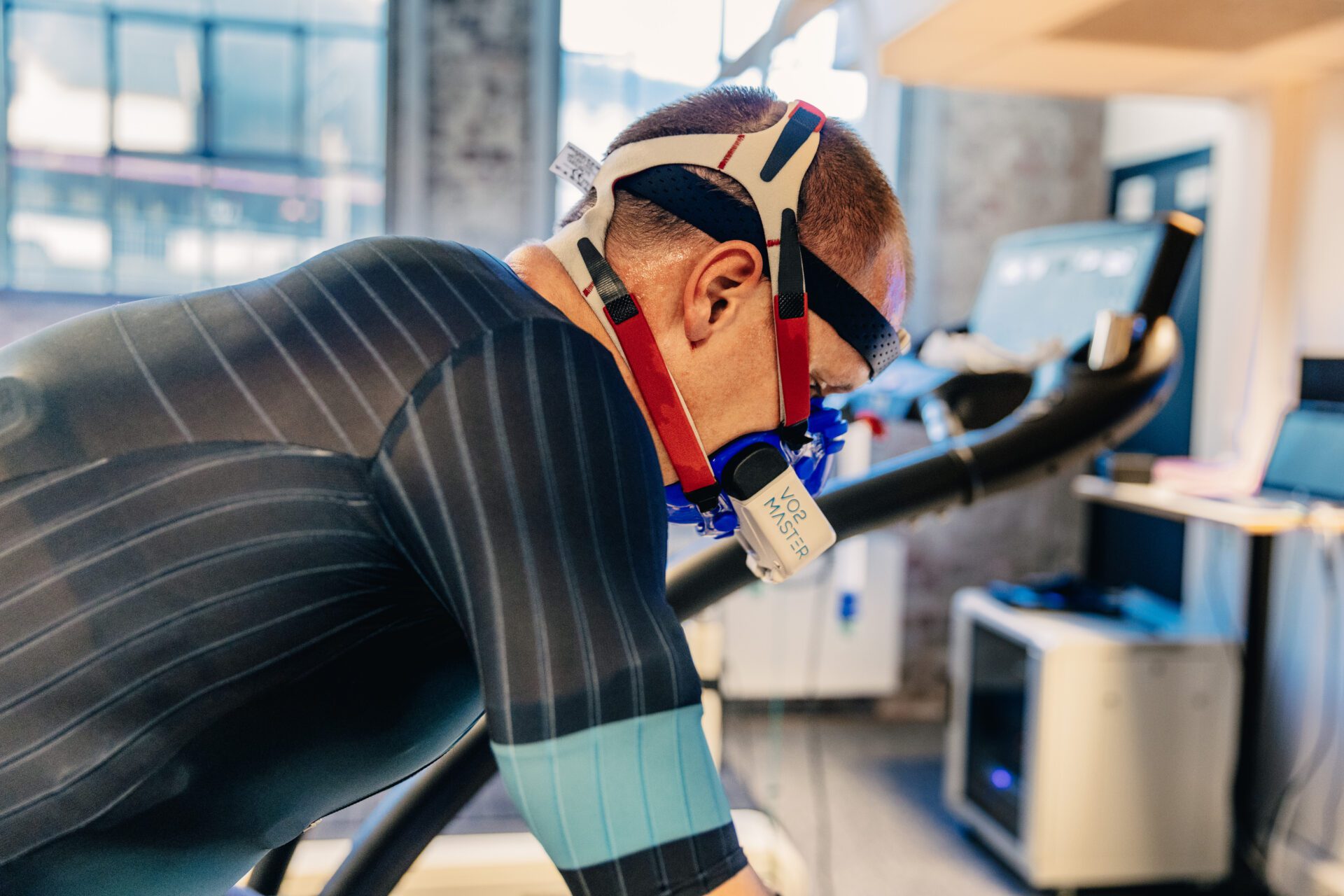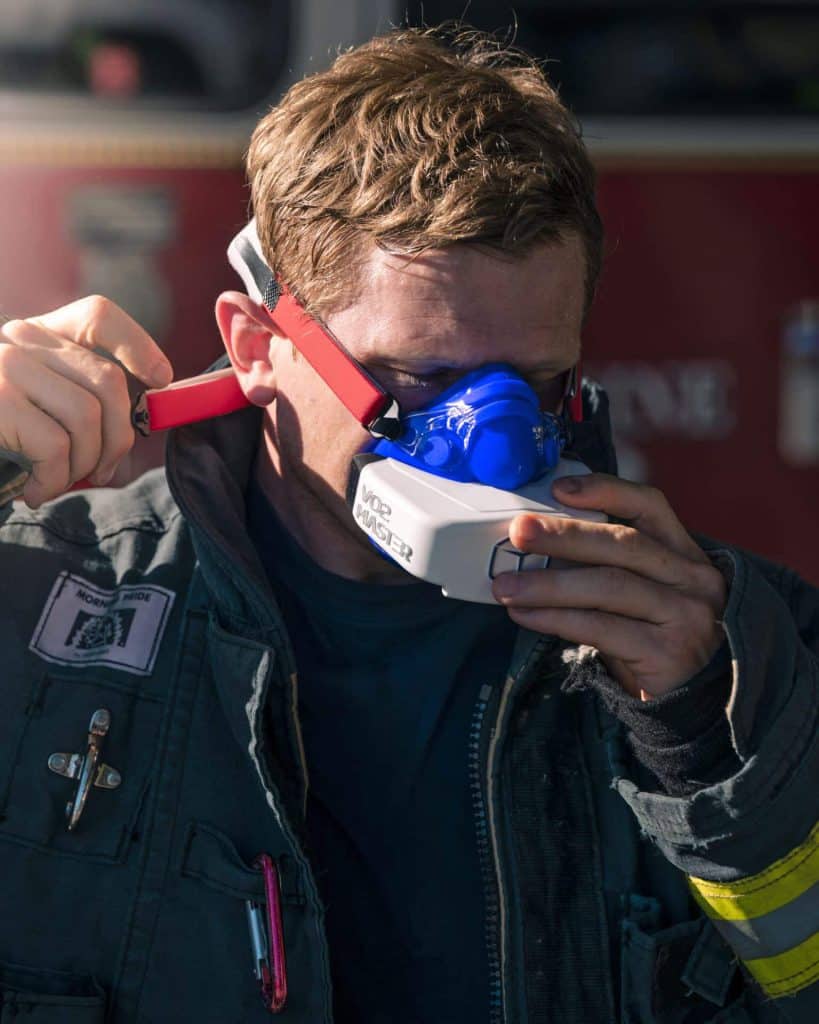The Norwegian Method: Kristian Blummenfelt Talks Testing, Training, and Paris 2024
In this episode of The Norwegian Method, Dr. Lipman speaks with Kristian Blummenfelt about testing, training, and Paris 2024.

This is the third episode in season two. If you haven’t yet listened to Episode 2, click here to read our seven takeaways and listen to the episode in full.
In Episode 3 of The Norwegian Method Podcast’s second season, presented by Santara Tech, host Dr. David Lipman talks with Olympic gold medalist and three-time World Champion triathlete Kristian Blummenfelt.
Together, they discuss:
- How the harsh weather in Blummenfelt’s hometown of Bergen has given him an edge as a triathlete
- Overcoming disappointing races
- Blummenfelt’s training, state of mind, and Olympic predictions with only weeks until the Games begin
- The potential swim cancellation and the implications of potential last-minute course changes in Paris
Check out our nine highlights from the episode.
1. The Norwegian Method: How Being from Bergen, Norway, Has Made Kristian a Stronger Triathlete
The people of Bergen, Norway, are known for proudly claiming their hometown. To Kristian, it represents confidence and self-belief—it’s why he is who he is.
Kristian also believes Bergen’s climate has made him a stronger triathlete. With harsh conditions and rain during two-thirds of the year, he believes his hometown training gave him an edge.
He explains that there’s something beautiful about pushing through adversity: being out by yourself in bad weather. The work you’re doing is something not everyone’s doing—your competition certainly isn’t.
He believes those freezing cold sessions where you’re losing feeling in your fingers are a mental exercise that makes it easier for you to persevere through adversity.
2. Kristian’s Challenging Races in Yokohama and Cagliari
While his goal was to improve his swim and run from last year, Kristian’s recent races in Yokohama and Cagliari didn’t go as planned.
In Yokohama, he came off the bike with the pack leaders but was a gear too slow on the run, meaning he couldn’t fight for a podium.
He felt better heading into Cagliari but, due to gear mishaps, caught a flat tire around the 16-kilometer mark of the bike ride. As a result, he mentally pivoted to treating the race as a training session.
3. How Kristian is Feeling in the Lead-Up to the Olympics

Following a slight injury earlier in the season, Kristian feels surprisingly good. He’s been running quite a lot and hasn’t experienced any new issues so far. His goal now is to stay injury-free for the next six weeks before he begins to taper ahead of the Olympics.
While he would have preferred to perform better in Yokohama and Cagliari, he’s still confident there’s a way to win in Paris. The key is to use the coming weeks to find the perfect training mix.
He emphasizes that he is not going to the Games for a top-ten or top-five finish—he’s going there to win.
4. Overcoming Disappointing Races
Despite a few disappointing results, Kristian takes it all in stride, using his performances to discern valuable lessons.
In Yokohama, he explains he simply wasn’t good enough. So, he used that race to figure out what’s missing in training and adapt accordingly.
While he performed better in Cagliari and was happy with how he felt before and during the race, he took this as a mental exercise in ensuring adversity doesn’t destroy his mindset in any race.
5. Training Changes Ahead of Paris 2024
In the final weeks before the Olympics, Kristian and coach Olav Aleksander Bu have embraced a new structure for their training weeks.
They’re currently dropping back threshold work while still maintaining volume. The focus is to improve overall fitness through track sessions and a mix of altitude and sea level training.
6. Managing Stress During Big Moments
During his final push towards the Games, Kristian has been focusing less on sponsorship obligations and turning his attention to the race ahead.
He’s also spending less time on his phone, disconnecting from social media, and trying to remain more in the moment.
It’s essential for him to be more efficient and more structured with his time.
7. Training with Younger Triathletes
Recently, Kristian has been training with younger triathletes. He enjoys having company for his training sessions.
He’s quick to clarify that these sessions benefit both himself and his training partners—it allows him to help them develop their performance while also giving himself the benefit of high-quality training.
Most importantly, training with other triathletes helps him to enjoy the process—and that’s an essential element of preparation.
8. Kristian’s Current Testing Protocols and Learnings

At the moment, Kristian and Olav are testing often, including with their VO2 Master analyzer.
Their testing takes place over three days—one each from swimming, cycling, and running, and all followed by easy training in another discipline.
Kristian emphasizes the value of training in giving him data about whether he’s going in the right direction and if things are improving.
He explains that testing isn’t just about chasing the highest possible number, but rather understanding the data behind his performance and providing him with clear insights about how to tailor his training in the coming weeks.
This process helps him ensure he’s not just replicating what’s been done before and instead finding new ways to improve.
9. Olympic Predictions and Thoughts on a Possible Swim Cancellation in Paris
There are a few key elements to Kristian’s race strategy for the Olympics, including finding the right positioning in the river during his swim to avoid currents that might slow him down.
He believes it’s going to be a tight race, and has seen his competitors pulling paces that come close to his paces from the last Olympic games.
Kristian expects to see athletes taking more risks and feels we might even see some current favourites crack under pressure. So, it’s going to be important to have a hard final kick in the race.
When it comes to a potential swim cancellation due to water quality issues in the Seine, Kristian’s feelings are clear: if the swim is canceled, it’ll be a massive failure across the board. You need to have a swim, bike, and run leg in a triathlon, even if they have to look at changing the location.
However, he also believes this needs to be treated like a professional sport with professional athletes, and short-notice course changes should not even need to be a consideration. Any changes in the course will impact the way athletes race the course and could totally alter the strategy with minimal time left to adjust.
If you’d like to learn more, you can listen to episode 3 in its entirety. You can also find brand-new video content and previous episodes from The Norwegian Method on the VO2 Master blog.
